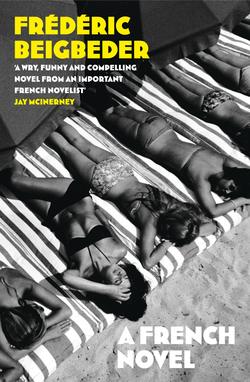Читать книгу A French Novel - Frédéric Beigbeder - Страница 9
2 LOST GRACE
ОглавлениеI do not remember my childhood. No one believes me when I say that. Everyone remembers their past; what’s the point of living if you forget your life? I have nothing left of myself: from zero to the age of fifteen, I am confronted by a black hole (as defined in astrophysics: ‘a compact mass having a gravitational field so intense that no matter or radiation can escape’). For a long time I believed that this was normal, that others experienced the same amnesia. But whenever I asked, ‘Do you remember your childhood?’, they would tell me endless stories. I’m ashamed that my autobiography will be written in invisible ink. Why is my childhood not indelible? I feel excluded from the world, because the world has an archaeology and I do not. I have covered my tracks like a criminal on the run. When I mention this disability, my parents roll their eyes to heaven, my family protests, my childhood friends get angry, former girlfriends are tempted to produce photographic evidence.
‘You haven’t lost your memory, Frédéric. It’s just that you don’t care about us!’
Amnesiacs are hurtful; their nearest and dearest take them for revisionists, as though forgetting is always a choice. I’m not lying by omission: I rummage through my life as if it were an empty trunk, and I find nothing; I am a wilderness. Sometimes I’ll hear people whispering behind my back: ‘That guy, I can’t quite work him out.’ I agree. How is it possible to work someone out when he doesn’t know where he comes from? As Gide says in The Counterfeiters, I am ‘built on piles having neither foundations nor substratum’. The ground gives way beneath my feet, I hover on a cushion of air, I am a bottle adrift on the sea, a Calder mobile. In order to please, I gave up having a backbone, I wanted to blend into the background like Zelig, the human chameleon. To forget one’s personality, lose one’s memory in order to be loved; to become, the better to charm, that which others wish one to be. In psychiatric terms this is a personality disorder known as ‘deficiently centred consciousness’. I am an empty vessel, a life without substance. In my childhood bedroom on rue Monsieur-le-Prince, pinned on one of the walls, I’m told, I had a poster for the film My Name is Nobody. I probably identified with the hero.
I have always written stories about men who have no past: the heroes of my books are products of an age of immediacy, cast adrift in a rootless present – transparent inhabitants of a world in which feelings are as short-lived as butterflies, in which forgetfulness is a safeguard against pain. It is possible – I am living proof – to retain only a few scraps of one’s childhood, false for the most part, or fashioned after the fact. Such amnesia is encouraged in our society: even the future perfect is on the road to grammatical oblivion. My handicap will soon be a commonplace; my particular case will become the general. Nonetheless, we must accept that it is not usual to develop Alzheimer’s symptoms in middle age.
Often I refashion my childhood out of politeness. ‘Come on, Frédéric, you must remember?’ I nod sagely: ‘Oh yes, of course, I collected Panini stickers, I was a Rubettes fan, it’s all coming back to me now.’ I am terribly sorry to have to confess here: I remember nothing; I am my own imposter. I have no idea where I was between 1965 and 1980; perhaps this is why I am so lost today. I hope there is some secret, some mysterious hex, some magic spell I could discover which would lead me out of this personal labyrinth. If my childhood was not a nightmare, why does my mind keep my memory in a coma?
